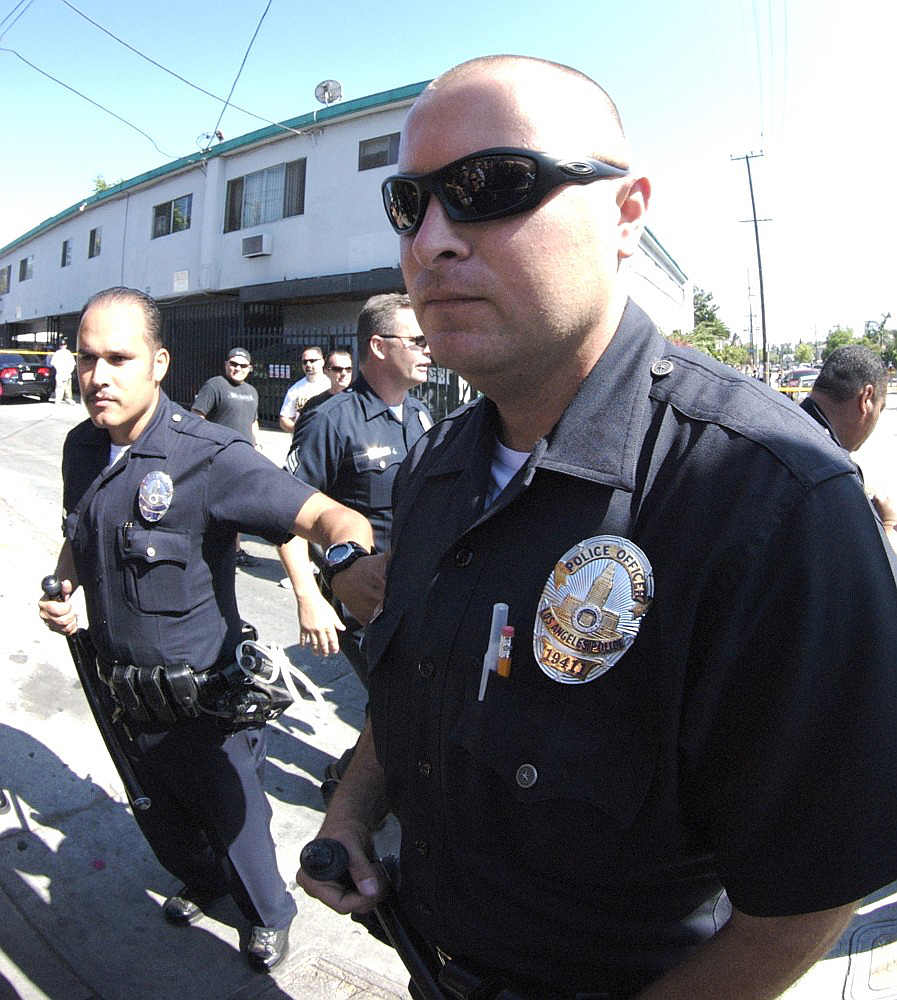
Image Credit: Shay Sowden, CC BY 2.0 via Wikimedia Commons
By Saul Roth
As previously shown, studies of police stress are conducted around the world. Departments everywhere seem to experience the same types of stress for their officers. A study in Turkey explains the four basic stresses for police: the nature of police work, the public, the criminal justice system, and the characteristics of the police organization (Hasan & Wiecko, 2007). Organizational problems seem to be a main concern in this study, including a lack of participation in making decisions and a lack of support by the upper levels of the department. The study also cited unfair discipline. Some officers felt alienated because of the structure of the department. In this study, more stress occurred in larger departments. The second largest cause of stress for Turkish officers is the nature of police work, which includes the danger, the different shifts, seeing the worst of society, and boredom. Some experts believe the danger aspect of police work is overrated, however. Smaller department officers see less danger. If studies do not ask officers about danger, however, they will not be able to address that issue. Even though officers feel danger, the culture of their job might not allow them to express it as a stressor. This study in Turkey involved 811 officers from seven different departments around the country. The study showed no difference of opinion over jurisdictional boundaries. Satisfaction at work was a strong predictor of lower stress: The officers who were more satisfied with co-workers, bosses, and their work had less stress. The more motivated the officer was, the less stress he had. The problems discovered in departments were high workload, not enough staff, inadequate procedures, and bad supervision. This study does not support the idea that the daily activities of a police officer such as arrest, pursuits, and crime scenes adds to their stress levels. The study also looked at gender, marital status, and education and found that these factors neither increase nor decrease stress level (Hasan & Wiecko, 2007).
My experience as a police officer leads me to differ from Hasan and Wiecko’s (2007) findings on stress. A study collected physical data of police officers on 121 ride-along shifts in a police department in British Columbia (Anderson, Litzenberger, & Plecas, 2002). Monitoring the police officers’ heart rate and nervous system activation were the primary tools for evaluation. Other indicators were also used. Before the officers even started their shift, there was anticipatory stress. The highest levels of stress monitored were just prior and during the most critical incidents. When an officer is sent on an assignment, it is usually very sudden and the officer’s coping mechanisms are overwhelmed. The sudden nature of the call raises the officer’s epinephrine, norepinephrine, and dopamine levels. This is followed by an increase of glucocorticoids, which mostly consist of cortisol. This affects the digestive system and blood flow by moving it from internal organs to muscles and alerts energy reserves. These responses emulate the fight or flight response (Anderson et al., 2002).
This reaction also involves the upper and lower portions of the brain. The upper brain uses past experiences to determine how threatening the assignment is. The lower part of the brain controls the heart rate, body temperature, and breathing rate. Other chemical reactions occur in the body. For example, endocrine response determines the production of adrenalin. Also, the activation of the nervous system and release of adrenalin increases the heart rate. Glucose and free fatty acids are released into the blood stream as fuel to increase the body’s metabolism. Blood pressure increases to insure adequate flow to all the tissues. Platelet aggregation occurs to increase coagulability of the blood in case of injury. The bronchiole tubes dilate for easier breathing and to move more oxygen to the blood. These actions are helpful in the short-term in case of fight, flight, or injury. In the long-term, the repetition of the process over and over is detrimental to the body. The over-production of cortisol suppresses the production insulin, which can leave the officer fatigued and prone to illness. Prolonged use of these actions can affect memory, learning, sleep, and cognitive function. It can also affect the immune system (Anderson et al., 2002).

Recent Comments